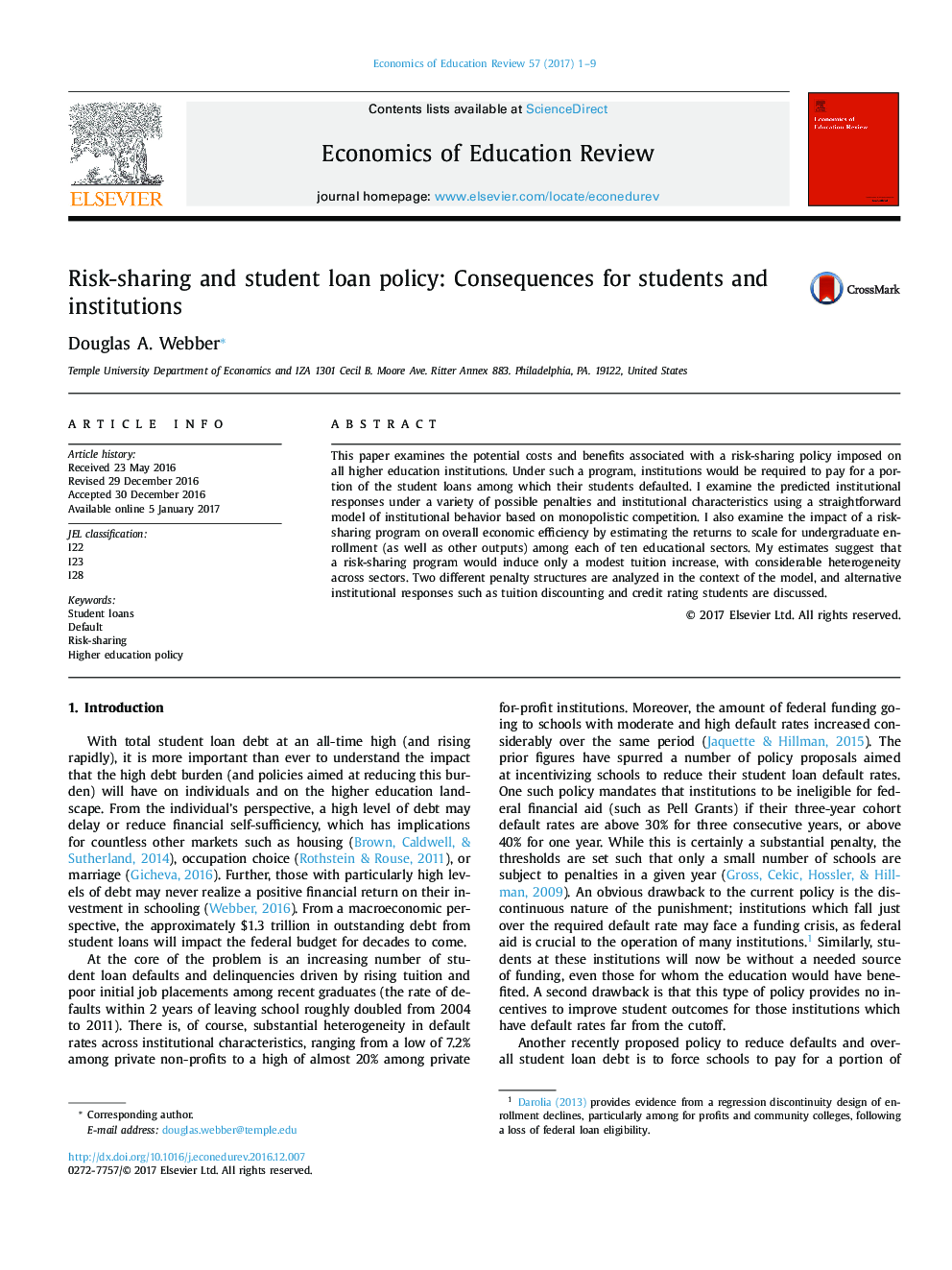| Article ID | Journal | Published Year | Pages | File Type |
|---|---|---|---|---|
| 4938338 | Economics of Education Review | 2017 | 9 Pages |
Abstract
This paper examines the potential costs and benefits associated with a risk-sharing policy imposed on all higher education institutions. Under such a program, institutions would be required to pay for a portion of the student loans among which their students defaulted. I examine the predicted institutional responses under a variety of possible penalties and institutional characteristics using a straightforward model of institutional behavior based on monopolistic competition. I also examine the impact of a risk-sharing program on overall economic efficiency by estimating the returns to scale for undergraduate enrollment (as well as other outputs) among each of ten educational sectors. My estimates suggest that a risk-sharing program would induce only a modest tuition increase, with considerable heterogeneity across sectors. Two different penalty structures are analyzed in the context of the model, and alternative institutional responses such as tuition discounting and credit rating students are discussed.
Related Topics
Social Sciences and Humanities
Economics, Econometrics and Finance
Economics and Econometrics
Authors
Douglas A. Webber,
